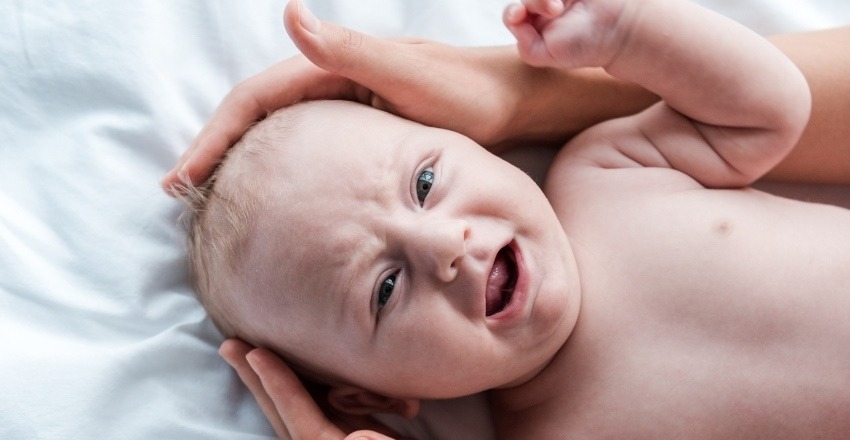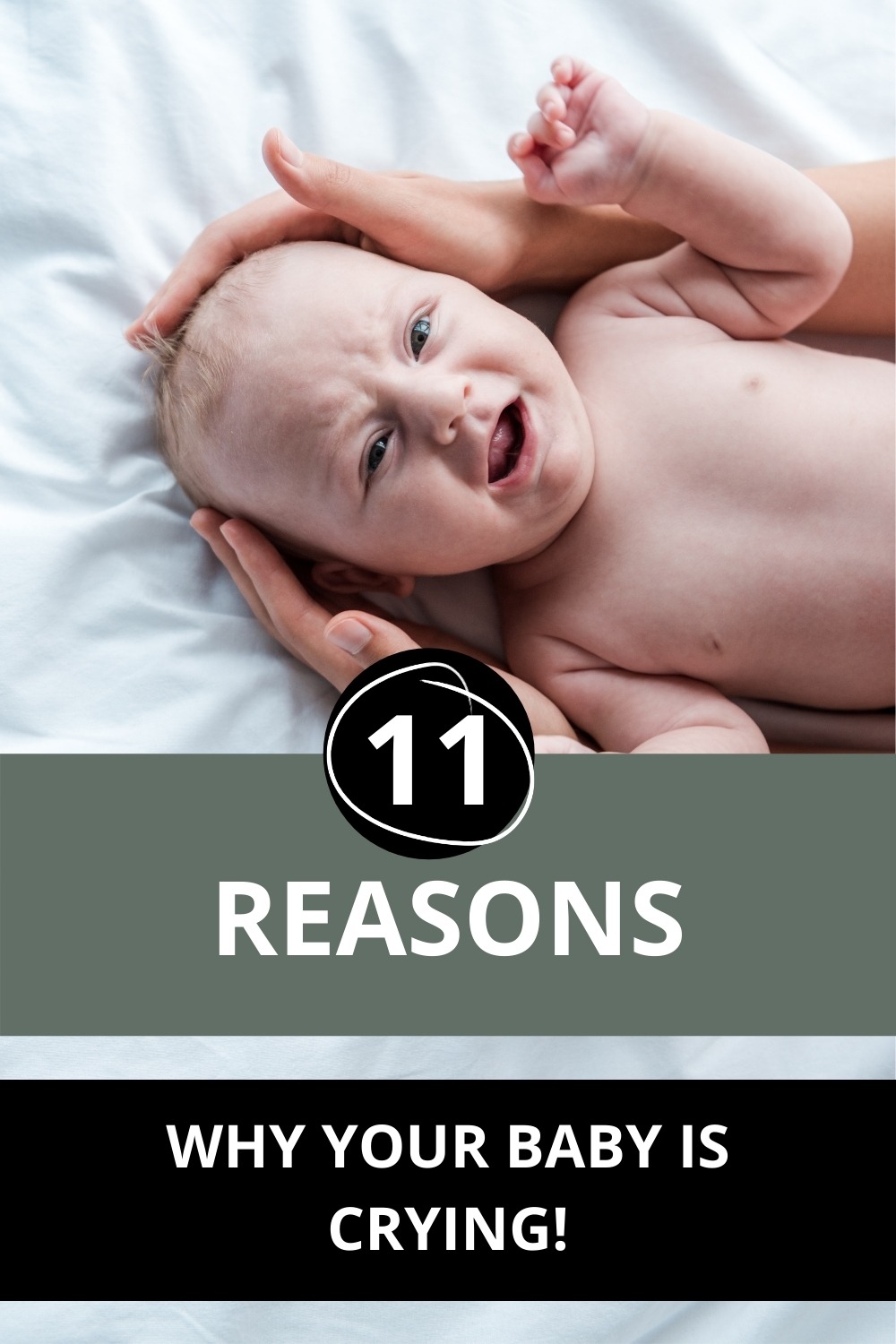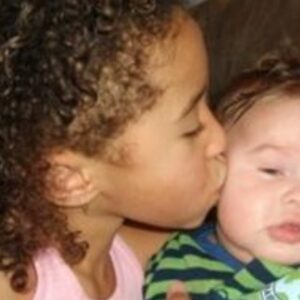“Help, why is my baby crying?” When our babies cry, we get tunnel vision – nothing is more important than to stop it. These reasons and clues will help.

Why is My Baby Crying?
A crying baby can make any parent feel desperate, especially if you don’t know why your baby is crying. The younger your infant is, the harder it is to know why he or she is crying and what to do about it.
But remember, babies cry in order to communicate. This is their only way to get your attention and help in the beginning. When you think about it from this perspective, it is worse to have a baby who doesn’t cry!
Generally speaking, if your young baby is healthy, he or she will cry as a result of hunger, fatigue, dirty diapers, or stomach pain. He or she might also be too cold or too hot or just want to be hugged.
When your baby gets a few months older, add boredom, anger, and fear to the list.
Below you’ll find tips on how to know why your baby is crying and how to help him or her in each situation.
For ways to soothe your baby even when you don’t have a clue, read this article.
How To Interpret a Baby’s Crying
- Hunger
- Fatigue
- Dirty diapers
- Stomach pain
- Temperature
- Boredom
- Overstimulation
- Fear
- Anger
- Pain
- Wants a cuddle
1. Hunger
When a baby is hungry, you might hear a specific type of crying – short, sharp screams that won’t stop until the baby is fed. The crying increases as the baby gets hungrier and hungrier. And the solution is – did you guess – food!
If your baby is completely starving and very upset, you might have to try to calm your baby by hugging him or her before they can eat. The best thing is to avoid letting your baby get this hungry.
If you think about it, no wonder your baby will signal very loud and clear until being fed – hunger is a matter of life and death!
2. Fatigue
If the area around your baby’s eyes gets red or if he or she rubs their eyes or yawns, your baby is likely to be tired. Put your baby to sleep by breastfeeding, rocking, swaddling, or whatever you are used to doing. For baby sleep tips, click here.
3. Dirty diapers
Just check the diaper. In addition to the diaper being dirty, you might want to make sure that your baby hasn’t developed a diaper rash or that the diaper elastic isn’t irritating his or her skin.
4. Stomach pain
Your baby might pull the legs up towards his or her stomach. The stomach might feel a bit hard if you press it lightly. Try to help your baby burp by holding him or her upright or release gas by putting her down on her back and lightly pressing her thighs towards her stomach.
Many babies seem to feel better if held tummy down, resting on your forearm. Make sure that he or she can breathe! You can pat his stomach lightly with your other hand.
To prevent and mitigate stomach pain, baby massage is great.
If nothing else works and you are desperate, a car ride may be just what you need to soothe a baby.
5. Temperature
If none of the above seems to be the reason why your baby is crying, check that your baby is not too cold or too hot. A good place to check is on his or her back. If your baby is sweaty, he or she is definitely too warm.
6. Boredom
Boredom usually starts with whining rather than crying. Boredom usually occurs if the baby has been put down for a long time in his or her bed alone, for example. Babies need more and more stimulation and variation the older they get.
If you need inspiration, check out our suggestions for baby activities or games to play with babies depending on their age. (Browse the different baby months to find age-appropriate games to play.)
7. Overstimulation
An over-stimulated baby tries to look away. He might cry and will get calmer just by being placed in a calmer spot.
For example, if you are out in a shopping mall or at a dinner with lots of people, the sights and sounds can become too much after a while. Put your baby down in his or her stroller or take him or her to a calm room and just hold your baby for a while.
8. Fear
Hysterical cries indicate fear. Your baby will usually watch mom or dad intensely, almost as if to ask how dangerous this situation is. A baby that cries out of fear is usually quite easily soothed by holding, talking gently, and taking him or her away from whatever scared your baby.
9. Anger
When your baby grows older, you will notice how his or her willpower increases. Even as early as at the age of 7 months, some babies can get furious when not allowed to do or get what they want.
Just get used to it! It is still nothing compared to how your baby will react when he or she is 2 years old! Or 3 years old. Or a teenager ;-)
If your baby is angry, you’ll probably know. Many babies scream, wave their arms, kick their legs, and cry hard.
10. Pain
Teething, tummy pain, a sore throat, tipping over from sitting on the floor, etc. will, of course, make your baby cry too.
If your baby seems to be in pain and you are the least worried, consult a doctor.
11. Wants a cuddle
If your baby is not in pain and you have tried everything else, but your baby won’t stop crying, just pick him or her up for a while, cuddle and talk to your baby. Maybe your little one was just longing for your love!
If nothing helps, check that your baby isn’t ill and take his or her temperature. And if your child screams a lot for no apparent reason, it might be colic (if he is younger than four months old).
Remember that there will be many, many times in the beginning when you won’t be able to figure out what is making your baby cry. It takes time to get to know each other.
How do YOU interpret your baby’s crying? Please share it below!
More About Crying Babies
- How To Use The 5 S’s To Soothe A Baby
- Baby Crying Tips and Information
- Attachment Parenting Tips For Babies

Paula Dennholt founded Easy Baby Life in 2006 and has been a passionate parenting and pregnancy writer since then. Her parenting approach and writing are based on studies in cognitive-behavioral models and therapy for children and her experience as a mother and stepmother. Life as a parent has convinced her of how crucial it is to put relationships before rules. She strongly believes in positive parenting and a science-based approach.
Paula cooperates with a team of pediatricians who assist in reviewing and writing articles.







My baby cried so much that we took him to hospital. He settles with movement in the car so we got ourselves a sleep rumbler. It has really helped. I take it everywhere. Even out for a coffee. Now I can sit and drink it with friends while it’s hot.